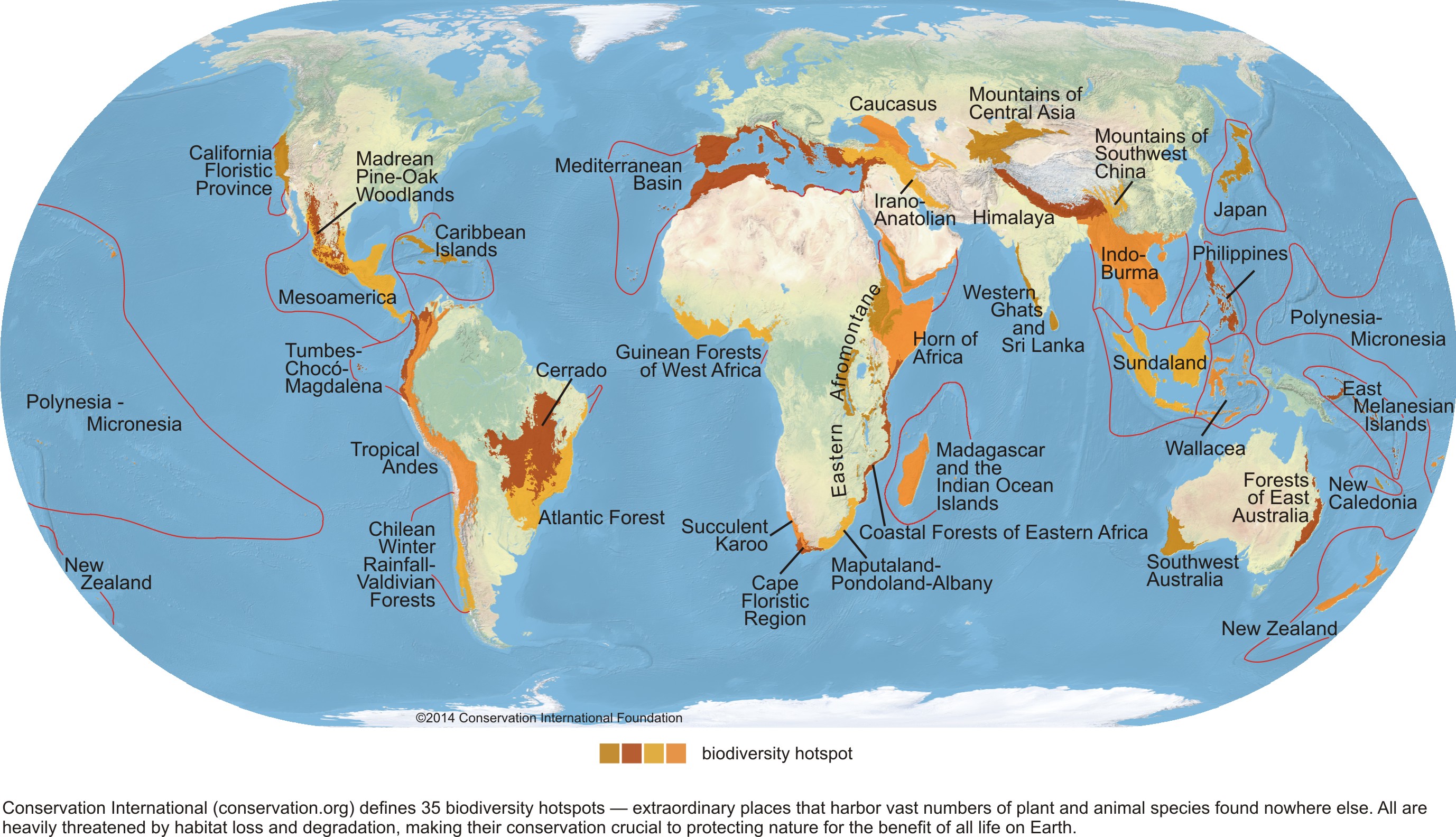Bio Diversity Hotspot
- British environmentalist and conservationist Norman Myers coined the term “biodiversity hotspot”.
- It refers to an area with a vast array of life-forms found nowhere else in the world and is threatened by various factors.
- To classify a region as a biodiversity hotspot two criteria must be met:
- It should have a minimum of 1,500 species of vascular plants found solely in that region
- It should have lost at least 70 % of its native vegetation.
- Around the world, 36 areas qualify as hotspots and they represent just 2.4% of Earth’s land surface.

- India is one of the world’s 17 mega-diverse countries.
- It has biodiversity hotspots in the Western Ghats, the Himalayas, the Andaman and Nicobar Islands.
- Focusing on biodiversity hotspots is the way to save the most species with the least use of time, money and effort.
SWAYATT
- It is an initiative launched by the Ministry of Commerce and Industries.
- It is to promote Start-ups, Women and Youth Advantage Through e-transactions on Government e Marketplace (GeM).
- This will bring together the key stakeholders within the Indian entrepreneurial ecosystem to GeM.
- GeM Start-up Runway, an initiative of GeM in association with Start -up India, was also launched.
- It is to facilitate Start-ups registered with Start -up India.
- It will be an aid to access the public procurement market and sell innovative products and services to government buyers.
- Both these initiatives will reach out and empower the diverse groups in our country.
Tele-Law and Nyaya Bandhu
- Tele-Law (mobile application and dashboard) and Nyaya Bandhu (mobile application) were launched recently by Department of Justice (DoJ), Ministry of Law and Justice.
- Tele-Law is about mainstreaming Legal Aid through Common Service Centers while Nyaya Bandhu is about Pro Bono Legal Services (Free Legal Services).
- The tele-law services across the country provide every litigant access to free legal aid services.
- The Nyaya bandhu app service was developed to accelerate and facilitate practicing advocates to register and connect with the registered eligible beneficiaries.
- Both the programs are aimed at fulfilling the State's constitutional obligation of providing "free legal aid" for all (Article 39A).
Operation Digital Board (ODB)
- It was launched by the Ministry of Human Resource Development.
- It has been launched on the lines of Operation Blackboard to provide better digital education in schools.
- It aims to set up one digital and interactive board per classroom in government and government-aided schools
- 7 lakh classrooms of 9th, 10th and 11th standards and 2 lakh classrooms of colleges and Universities will be covered in the next 3 years.
- University Grants Commission will be the implementing agency for ODB in Higher Education Institutions.
Graveyard Orbits
- It is a higher orbit where the satellites are transferred to, after they reach the end of their mission.
- It is mostly used for the disposal of geostationary satellites that orbit directly above Earth’s equator at a height of 35,786 kilometers.
- It usually lies 300km above the geostationary orbit.
- This is done to prevent collisions with other operational satellites and also to make space for new satellites in the geostationary orbit.
All India Citizens Survey of Police Services
- Ministry of Home Affairs has commissioned the Bureau of Police Research and Development to conduct a pan-India survey called “All India Citizens Survey of Police Services”.
- The survey will be conducted through the National Council of Applied Economic Research, New Delhi.
- The survey is aimed
- To understand public perceptions about Police
- To gauge the level of non-reporting of crimes or incidents to Police
- To assess the position on ground relating to crime reporting & recording, timeliness and quality of police response and action,
- To assess citizens' perception and experience about women and children’s safety
Source: PIB, The Hindu
